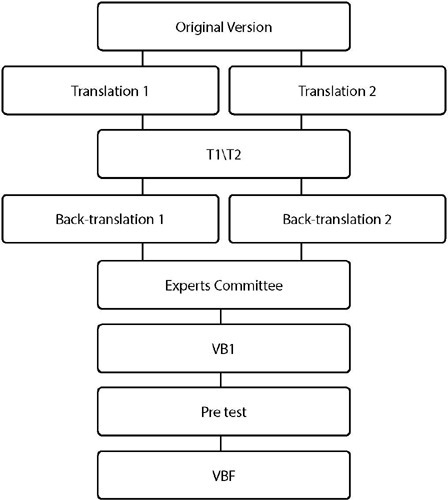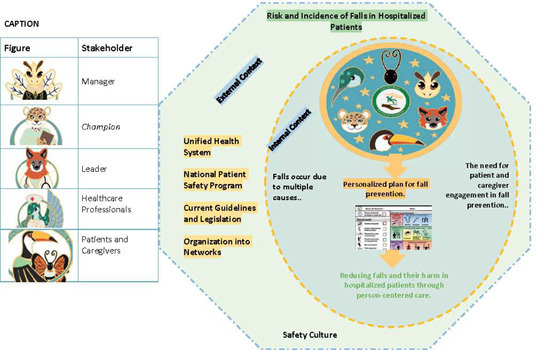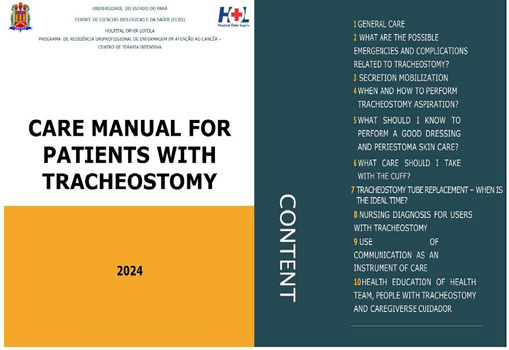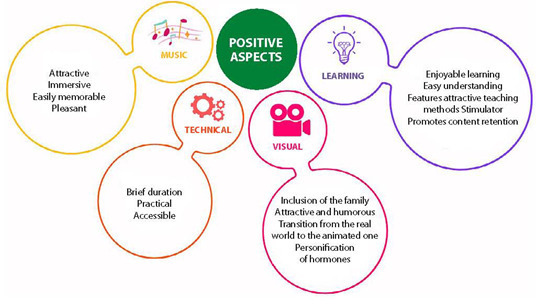-
06-14-2024
Duração e qualidade do sono da equipe de enfermagem brasileira que trabalha em turnos
Revista Brasileira de Enfermagem. 2024;77(2):e20230167
Abstract
Duração e qualidade do sono da equipe de enfermagem brasileira que trabalha em turnos
Revista Brasileira de Enfermagem. 2024;77(2):e20230167
DOI 10.1590/0034-7167-2023-0167
Views0See moreRESUMEN
Objetivo:
analizar la duración y calidad del sueño en profesionales de enfermería que trabajan por turnos.
Método:
investigación analítica, transversal, realizada entre septiembre de 2017 y abril de 2018, en un hospital público del sur de Brasil, con el equipo de enfermería. Se utilizó el cuestionario sociolaboral y de síntomas de salud, la Escala de Somnolencia de Epworth y el Índice de Calidad del Sueño de Pittsburgh. Los datos se presentan como estadística descriptiva e inferencial, análisis bivariado y regresión logística binaria.
Resultados:
participaron 308 profesionales de enfermería, con predominio de sueño prolongado, ausencia de somnolencia y mala calidad del sueño. La duración corta del sueño (<6 h) se asoció con turnos de día y mala calidad del sueño. La calidad del sueño se asoció con la presencia de somnolencia diurna excesiva y con el trabajo diurno.
Conclusión:
los turnos de trabajo, el insomnio y la cefalea fueron los principales factores relacionados con la falta de sueño de los profesionales de enfermería. Los resultados pueden justificar el desarrollo de investigaciones de intervención para la salud de los trabajadores.
-
ORIGINAL ARTICLE06-14-2024
Sleep duration and quality of Brazilian nursing staff who work in shifts
Revista Brasileira de Enfermagem. 2024;77(2):e20230167
Abstract
ORIGINAL ARTICLESleep duration and quality of Brazilian nursing staff who work in shifts
Revista Brasileira de Enfermagem. 2024;77(2):e20230167
DOI 10.1590/0034-7167-2023-0167
Views0See moreABSTRACT
Objective:
to analyze sleep duration and sleep quality in nursing professionals who work in shifts.
Method:
this is a cross-sectional, analytical research, carried out between September 2017 and April 2018, at a public hospital in southern Brazil, with the nursing team. A socio-occupational and health symptoms questionnaire, the Epworth Sleepiness Scale, and the Pittsburgh Sleep Quality Index were used. Data are presented as descriptive and inferential statistics, bivariate analysis, and binary logistic regression.
Results:
participants were 308 nursing professionals with a predominance of long-term sleep, absence of drowsiness, and poor sleep quality. Short-term sleep (<6h) was associated with day shift and poor sleep quality. Sleep quality was associated with presence excessive daytime sleepiness and work day shift.
Conclusion:
work shift, insomnia and headache were the main factors related short-term sleep for nursing professionals. The results may justify the development of intervention research for workers’ health.
-
ORIGINAL ARTICLE06-14-2024
Translation and Cross-Cultural Adaptation of the LYMPH-ICF Instrument for Lymphedema into Portuguese/Brazil
Revista Brasileira de Enfermagem. 2024;77(2):e20230137
Abstract
ORIGINAL ARTICLETranslation and Cross-Cultural Adaptation of the LYMPH-ICF Instrument for Lymphedema into Portuguese/Brazil
Revista Brasileira de Enfermagem. 2024;77(2):e20230137
DOI 10.1590/0034-7167-2023-0137
Views0See moreABSTRACT
Objective:
The aim of this study is to cross-culturally adapt the Lymphoedema Functioning, Disability and Health Questionnaire Lymphoedema (LYMPH-ICF) instrument into Brazilian Portuguese and conduct a pilot application (n = 10), without psychometric pretensions.
Method:
Methodological research was conducted, following the steps of translation, synthesis, back-translation, and evaluation by the expert committee. Two translators, two back-translators, and twelve professionals participated in the expert committee. A pretest was carried out with 10 patients with secondary lymphedema due to breast cancer. The degree of agreement was determined by the content validity coefficient.
Results:
It was necessary to modify 8 out of the 29 questions comprising the questionnaire, which exhibited idiomatic disagreement. However, despite these changes, there were no indications of impairments, as content reliability was achieved through a validity coefficient of 0.90.
Final Considerations:
The instrument was successfully translated and cross-culturally adapted for Brazil with a high level of agreement.

-
ORIGINAL ARTICLE05-27-2024
Fall Tailoring Interventions for Patient Safety Brazil Program: an evaluability study in a teaching hospital
Revista Brasileira de Enfermagem. 2024;77(2):e20230348
Abstract
ORIGINAL ARTICLEFall Tailoring Interventions for Patient Safety Brazil Program: an evaluability study in a teaching hospital
Revista Brasileira de Enfermagem. 2024;77(2):e20230348
DOI 10.1590/0034-7167-2023-0348
Views0See moreABSTRACT
Objectives:
to present the theoretical model, logic model, and the analysis and judgment matrix of the Fall TIPS Brazil Program.
Methods:
a qualitative, participatory research approach, in the form of an evaluability study, encompassing the phases (1) problem analysis; (2) program design, development, and adaptation to the Brazilian context; (3) program dissemination. Data were collected through document analysis and workshops.
Results:
through document analysis, workshops with stakeholders from the participating institution, and validation with key informants, it was possible to identify the program’s objectives, expected outcomes, and the target audience. This allowed the construction of theoretical and logic models and, through evaluative questions, the identification of indicators for the evaluation of the Fall TIPS Brazil Program.
Final Considerations:
this study has provided insights into the Fall TIPS program, the topic of hospital fall prevention, and the proposed models and indicators can be employed in the implementation and future evaluative processes of the program.

-
ORIGINAL ARTICLE05-27-2024
Nursing care protocol for critical users with tracheostomy under mechanical ventilation
Revista Brasileira de Enfermagem. 2024;77(2):e20230337
Abstract
ORIGINAL ARTICLENursing care protocol for critical users with tracheostomy under mechanical ventilation
Revista Brasileira de Enfermagem. 2024;77(2):e20230337
DOI 10.1590/0034-7167-2023-0337
Views0See moreABSTRACT
Objectives:
to develop and assess a nursing care protocol for critically ill users with tracheostomy under mechanical ventilation.
Methods:
a methodological study, developed through two phases, guided by the 5W2H management tool: I) target audience characterization and II) technology development.
Results:
thirty-four nursing professionals participated in this study, who presented educational demands in relation to care for critical users with tracheostomy, with an emphasis on standardizing care through a protocol and carrying out continuing education.
Final Considerations:
the creation and validity of new technologies aimed at this purpose enhanced the participation of nursing professionals and their empowerment in the health institution’s microsectoral actions and in macrosectoral actions, highlighting the need for public policies that guarantee the conduct of a line of care for users with tracheostomy.

-
ORIGINAL ARTICLE05-27-2024
Assessment of educational technology in lactation physiology by health students
Revista Brasileira de Enfermagem. 2024;77(2):e20230252
Abstract
ORIGINAL ARTICLEAssessment of educational technology in lactation physiology by health students
Revista Brasileira de Enfermagem. 2024;77(2):e20230252
DOI 10.1590/0034-7167-2023-0252
Views0See moreABSTRACT
Objectives:
to assess the suitability, facilitators, and barriers of using a video clip for teaching lactation physiology to health students.
Methods:
a cross-sectional study was conducted with online data collection at a higher education institution, using the Assistive Technology Assessment Instrument and open-ended questions. The sample consisted of 88 students.
Results:
the video clip was deemed suitable in all attributes. Facilitators identified included attractiveness, musicality, and ease of access. Barriers noted were the music’s speed and the necessity for prior knowledge. The video clip achieved adequate scores for interactivity (1.71), purpose (1.77), relevance (1.64), and clarity (1.77). The overall average of the attributes was 1.72.
Conclusions:
the video clip can serve as an effective learning strategy to enhance hybrid education, potentially contributing to the promotion and support of breastfeeding. However, some barriers underscore the importance of prior knowledge for a complete understanding of the content.

-
ORIGINAL ARTICLE05-27-2024
Technology for nursing care in a Maternal Intensive Care Unit: a methodological study
Revista Brasileira de Enfermagem. 2024;77(2):e20230202
Abstract
ORIGINAL ARTICLETechnology for nursing care in a Maternal Intensive Care Unit: a methodological study
Revista Brasileira de Enfermagem. 2024;77(2):e20230202
DOI 10.1590/0034-7167-2023-0202
Views0See moreABSTRACT
Objectives:
to develop and validate a nursing care plan in a Maternal Intensive Care Unit.
Methods:
a methodological study, developed in stages: integrative review; Nursing History construction; care plan restructuring; appearance and content validity by judges.
Results:
the history was organized into sections: Identification; Basic Human Needs; Physical Examination; and Assessment of Basic Human Needs. A care plan was restructured with 34 diagnoses, organized according to basic human needs. A satisfactory level of appearance validity of the history and care plan was obtained (Concordance Index varying between 86.3 and 100 for both instruments), and content validity with average indexes of 90.8 and 92.8, respectively. Thirty-four diagnoses, their interventions and nursing actions were consolidated.
Conclusions:
the instruments were considered relevant and pertinent in terms of appearance and content, and their use in the institution under study as well as in other similar services may be recommended.
-
05-13-2024
Metodologia qualitativa: considerações e singularidades sobre a implementação de intervenções centradas na pessoa
Revista Brasileira de Enfermagem. 2024;77(3):e770301
Abstract
Metodologia qualitativa: considerações e singularidades sobre a implementação de intervenções centradas na pessoa
Revista Brasileira de Enfermagem. 2024;77(3):e770301
DOI 10.1590/0034-7167.2024770301pt
Views0A investigação qualitativa em saúde permite a compreensão aprofundada de como a pessoa experiencia as diferentes transições de saúde, a relação com os profissionais de saúde e a passagem pelos diferentes ambientes de prática clínica. Concomitantemente, tem o potencial de suportar a tomada de decisão clínica dos profissionais e de empoderar o cidadão na sua […]See more
-
01-01-2017
Enfermagem em cardiologia: estado da arte e fronteiras do conhecimento
Revista Brasileira de Enfermagem. 2017;70(3):451-452
Abstract
Enfermagem em cardiologia: estado da arte e fronteiras do conhecimento
Revista Brasileira de Enfermagem. 2017;70(3):451-452
DOI 10.1590/0034-7167.2017700301
Views0As doenças cardíacas lideram o grupo das desordens clínicas de maiores taxas de hospitalização e mortalidade, além de apresentarem um progressivo aumento da incidência na população devido ao envelhecimento concomitante ao desenvolvimento das terapias e tecnologias em saúde. Uma estimativa obtida pelo DATASUS() acusa um gasto onerado ao sistema de saúde do país, no ano […]See more -
01-01-2017
Nursing in cardiology: state of the art and frontiers of knowledge
Revista Brasileira de Enfermagem. 2017;70(3):451-452
Abstract
Nursing in cardiology: state of the art and frontiers of knowledge
Revista Brasileira de Enfermagem. 2017;70(3):451-452
DOI 10.1590/0034-7167.2017700301
Views0Heart diseases lead the group of clinical disorders with higher rates of hospitalization and mortality and present a progressive increase in incidence due to population ageing, simultaneously to the development of new health therapies and technology. DATASUS() estimated a cost of nearly 700 million Reais for the country’s health care system in 2015, only for […]See more -
REFLECTION01-01-2017
Nursing care in early childhood: contributions from intersubjective recognition
Revista Brasileira de Enfermagem. 2017;70(2):446-450
Abstract
REFLECTIONNursing care in early childhood: contributions from intersubjective recognition
Revista Brasileira de Enfermagem. 2017;70(2):446-450
DOI 10.1590/0034-7167-2016-0319
Views0See moreABSTRACT
Objective:
to understand the elements composing intersubjective recognition that are relevant for nursing care in early childhood in favor of comprehensive child development.
Method:
reflexive study based on the Honnethian concept of intersubjective recognition in the dimensions of affection, defense of rights, and social esteem.
Results:
nursing knowledge and practices, permeated by the intersubjective recognition in the mentioned dimensions, contribute to the dynamism of interpersonal relations, the production of co-responsibility, and shared construction of health care in early childhood, with benefits to comprehensive development.
Conclusion:
a successful coordination of the three intersubjective dimensions enables the expansion of the understanding on childhood and nursing care in child health in the field of human development promotion, covering affection, defense of rights, and social esteem in the established relationships with future positive individual and social possibilities.
-
REFLECTION01-01-2017
Hand hygiene as a caring practice: a reflection on professional responsibility
Revista Brasileira de Enfermagem. 2017;70(2):442-445
Abstract
REFLECTIONHand hygiene as a caring practice: a reflection on professional responsibility
Revista Brasileira de Enfermagem. 2017;70(2):442-445
DOI 10.1590/0034-7167-2016-0189
Views0See moreABSTRACT
Hand hygiene represents a fundamental nursing care practice and is traditionally considered the most important and effective measure in the prevention and control of healthcare-related infections. However, studies indicate that adherence to the procedure is unsatisfactory throughout the world, and show low adherence rates. In a context in which patient safety stands out as a priority, this text submits refl ections about professional responsibility when not adhering to hand hygiene practices, and ethical aspects related to this conduct.
-
REFLECTION01-01-2017
Systematization of nursing care and the formation of professional identity
Revista Brasileira de Enfermagem. 2017;70(2):436-441
Abstract
REFLECTIONSystematization of nursing care and the formation of professional identity
Revista Brasileira de Enfermagem. 2017;70(2):436-441
DOI 10.1590/0034-7167-2016-0515
Views0See moreABSTRACT
The aim of this study is to explore arguments that broaden the understanding of possible links between the organization of nursing care and the structuring of professional identity. For that purpose, some aspects related to these themes are addressed, highlighting issues regarding differences in the concepts of the organization of nursing care and the nursing process, as well as the performance of this activity and its possible impact on the establishment of its relationship with the professional identity. Emphasis is given to the need to stimulate the debate on the subject by nursing professionals involved in the training of human resources and the provision of care, as well as in class entities, in order to deepen understanding of these concepts as significant elements for strengthening our professional identity.
-
REFLECTION01-01-2017
Brazilian method for the development terminological subsets of ICNP®: limits and potentialities
Revista Brasileira de Enfermagem. 2017;70(2):430-435
Abstract
REFLECTIONBrazilian method for the development terminological subsets of ICNP®: limits and potentialities
Revista Brasileira de Enfermagem. 2017;70(2):430-435
DOI 10.1590/0034-7167-2016-0308
Views1See moreABSTRACT
Reflection on the limits and potentialities of a Brazilian method for the development of terminological subsets of ICNP®,(International Classification for Nursing Practice) based on the correlation between this method and international methods. This issue has been debated by the International Council of Nurses (ICN). Although the council propose a guideline for elaboration, they encourage and reinforce the use of various perspectives and processes in the development of subsets. Brazilian Nursing needs to propose a method and deepen reflections on the use of terminological subsets of ICNP® in the reality of the country. The development of subsets in Brazil is considered incipient and the proposed method needs to be used and deepened in order to spread the use of terminology through the application of subsets.
-
EXPERIENCE REPORT01-01-2017
Focus group on qualitative research: experience report
Revista Brasileira de Enfermagem. 2017;70(2):424-429
Abstract
EXPERIENCE REPORTFocus group on qualitative research: experience report
Revista Brasileira de Enfermagem. 2017;70(2):424-429
DOI 10.1590/0034-7167-2016-0091
Views0See moreABSTRACT
Objective:
to report the experience of applying the focus group technique for production of data in qualitative research.
Method:
four group sessions were held from May to June 2015, with the participation of professionals from the public sector of PHC and from specialized service.
Results:
the way focus group was developed is described in steps: planning, recruitment, ambience, group sessions, and evaluation.
Conclusion:
we highlight that the focus group, as a technique to produce data in collective space, can contribute not only to the construction of knowledge in Nursing, but also to the research approach with the assistance practice.

-
REVIEW01-01-2017
Patient with stroke: hospital discharge planning, functionality and quality of life
Revista Brasileira de Enfermagem. 2017;70(2):415-423
Abstract
REVIEWPatient with stroke: hospital discharge planning, functionality and quality of life
Revista Brasileira de Enfermagem. 2017;70(2):415-423
DOI 10.1590/0034-7167-2016-0166
Views0See moreABSTRACT
Objective:
analyze the strategies of hospital discharge planning for these patients, increasing the knowledge related to hospitalhome transition, discharge planning processes and the main impact on the quality of life and functionality.
Method:
integrative literature review using the PICOD criteria, with database research.
Results:
19 articles were obtained, using several approaches and contexts. For quality of life, the factors related to the patient satisfaction with care and the psychoemotional aspects linked with functionality are the most significant.
Conclusion:
during the hospitalization period, a careful hospital discharge planning and comprehensive care to patients and caregivers – in particular the functional and psychoemotional aspects – tend to have an impact on the quality of life of patients.

-
01-01-2015
Symbolic effects capitalized by nurses from the National Institute of Cancer in Brazil (1980 – 1990)
Revista Brasileira de Enfermagem. 2015;68(2):284-290
Abstract
Symbolic effects capitalized by nurses from the National Institute of Cancer in Brazil (1980 – 1990)
Revista Brasileira de Enfermagem. 2015;68(2):284-290
DOI 10.1590/0034-7167.2015680214i
Views0See moreABSTRACT
Objective:
to describe the strategies of nurses in the National Institute of Cancer to disseminate its scientifi c capital and discuss the symbolic effects capitalized in the fi eld of oncology in the 1980s.
Method:
historical social studies, with primary sources consisting of written documents and oral reports, and as secondary sources, articles and books on the subject, based on the French sociologist Pierre Bourdieu’s concepts of scientifi c capital and habitus.
Results:
it revealed the effective performance of nurses in this Institute on policies of cancer prevention and control and strategies used in the teaching of oncology nursing at the undergraduate level. In conclusion, nursing stands out in this context, through the dissemination of its scientifi c knowledge, as a participant in the construction of a scientifi c fi eld of oncology nursing in Brazil, highlighting the occupation of important social areas.
-
01-01-2015
Perception of nursing undergraduate students on self-aging
Revista Brasileira de Enfermagem. 2015;68(2):278-283
Abstract
Perception of nursing undergraduate students on self-aging
Revista Brasileira de Enfermagem. 2015;68(2):278-283
DOI 10.1590/0034-7167.2015680213i
Views1See moreABSTRACT
Objective:
to analyze the perceptions of nursing undergraduate students on their self-aging process.
Method:
qualitative study carried out between August and September, 2011 with 18 nursing undergraduate students of a public university in Salvador, Bahia. The interviews were analyzed by means of the Content Analysis method.
Results:
the following thematic concept was apprehended: Perceptions of nursing undergraduates on their self-aging, which generated two subcategories: A) The “don’t think about it” process; B) The context infl uencing the process.
Conclusion:
undergraduates reveal that the aging process is an intrinsic factor to human development. Family ties, spirituality and physical activity would be key mechanisms toward active aging. However, students also reported that their accelerated and stressed social lifestyles led to inadequate habits, such as the consumption of fast food and alcohol, which become negative infl uences in their aging process.
-
01-01-2015
Non-conventional technologies for data collection in Brazilian dissertations and theses
Revista Brasileira de Enfermagem. 2015;68(2):269-277
Abstract
Non-conventional technologies for data collection in Brazilian dissertations and theses
Revista Brasileira de Enfermagem. 2015;68(2):269-277
DOI 10.1590/0034-7167.2015680212i
Views0See moreABSTRACT
Objective:
to characterize non-conventional technologies used for data collection of dissertations and theses available in the Catalog of Theses and Dissertations (CEPEn) of the Brazilian Nursing Association (ABEn).
Method:
this is a documentary research, whose data were collected in the catalogs of theses and dissertations available at the ABEn website, from Volumes XIX to XXI. The indicators collected were: academic level; educational institution; year; qualification of the author; setting; non-conventional technology used; type of technology; association with conventional techniques; methodological design; benefi ts and methodological limitations.
Results:
from a total of 6346 studies, only 121 (1.91%) used non-conventional technologies for data collection, representing the fi nal sample of the study.
Conclusion:
it is concluded that Brazilian Nursing researches still need methodological innovations for data collection.

-
01-01-2015
Content analysis of a technology to the nursing diagnostic reasoning
Revista Brasileira de Enfermagem. 2015;68(2):261-268
Abstract
Content analysis of a technology to the nursing diagnostic reasoning
Revista Brasileira de Enfermagem. 2015;68(2):261-268
DOI 10.1590/0034-7167.2015680211i
Views0See moreABSTRACT
Objective:
to undergo a content analysis of a metacognitive strategy of indirect assessment in the pre-encounter with the client.
Method:
methodological study. Agreement and inter-rater reliability index for the criteria: relevance, adequacy, clarity, conciseness and accuracy of a technology to the nursing diagnosis reasoning for novices through an electronic form. The sample consisted of 13 raters. Data were analyzed using descriptive statistics.
Results:
high agreement and inter-rater reliability for 85 items related to data collection stage and the strategy description. Only fi ve items did not reach the validation criteria and must be rewritten.
Conclusion:
indirect assessment of the pre-encounter is relevant to the diagnostic reasoning process, being possible to develop competencies and diagnostic skills in the novice through strategies, proposals on innovative technology in the form of a diagram.
-
01-01-2015
Manual for monitoring the quality of nursing home care records
Revista Brasileira de Enfermagem. 2015;68(2):253-260
Abstract
Manual for monitoring the quality of nursing home care records
Revista Brasileira de Enfermagem. 2015;68(2):253-260
DOI 10.1590/0034-7167.2015680210i
Views0See moreABSTRACT
Objective:
to build and validate an instrument aimed at monitoring the quality of nursing records in the Home Care Program (HCP) of a university hospital.
Method:
methodological study involving the elaboration of a manual, whose content was later submitted to six experts for validation, reaching a ≥ 80% consensus. The data collection process was carried out in 2012 by means of a questionnaire comprised of the following issues: nursing evolution, nursing diagnosis, and nursing prescription, and standards for the nursing team recommended by the Regional Nursing Council of São Paulo and by the assessed institution. Manual items were judged according to the following variables: relevance, pertinence, clarity and simplicity.
Results:
of the 39 propositions, 100% achieved ≥ 80% agreement in the relevance, pertinence and clarity variables; 92.3% in the simplicity variable. Sleep/rest, Mobility and Check-out variables did not reach a favorable minimum consensus in the prescribed activities and were improved following suggestions from the experts.
Conclusion:
we believe that the instrument will enable the improvement of the HCP’s work process.
-
01-01-2015
Vulnerability of families of elderly citizens cared for by the Family Health Strategy
Revista Brasileira de Enfermagem. 2015;68(2):244-252
Abstract
Vulnerability of families of elderly citizens cared for by the Family Health Strategy
Revista Brasileira de Enfermagem. 2015;68(2):244-252
DOI 10.1590/0034-7167.2015680209i
Views0See moreABSTRACT
Objective:
the present descriptive, exploratory, cross-sectional study aimed to identify the vulnerability of families of elderly citizens cared for by the Family Health Strategy (FHS).
Method:
the research employed home interviews and was developed with a sample of 500 families of aged people cared for by 32 FHS teams in the city of Dourados, MS, Brazil. The Family Development Index (FDI) was adapted in order to classify the families according to their degree of vulnerability.
Results:
the results revealed the presence of multigenerational families with low educational levels among individuals over the age of 20 and high illiteracy rates among elderly citizens. There were 403 families whose vulnerability was acceptable, 95 in severe vulnerability, and two families in a condition of very severe vulnerability. The most critical dimensions of the FDI were the access to knowledge and to work.
Conclusion:
the study identifi ed that there is still a need for further investments that can assist these aged people and their families in the Primary Health Care.
-
01-01-2015
The work in prison: reflections on the health of prison officers
Revista Brasileira de Enfermagem. 2015;68(2):235-243
Abstract
The work in prison: reflections on the health of prison officers
Revista Brasileira de Enfermagem. 2015;68(2):235-243
DOI 10.1590/0034-7167.2015680208i
Views0See moreABSTRACT
Objective:
to understand the working conditions of prison offi cers and the repercutions of labor activity on their health.
Method:
qualitative and descriptive research. Data were collected through open interviews with the prison offi cers of a regional prision and the speeches were submitted to content analysis.
Results:
the results showed unsatisfactory working conditions due to poor material resources and neglect of governmental regarding rehabilitation of convicts, resulting in workers’ exposure to psychosocial risks, dissatisfaction, and emotional distress.
Conclusion:
investments on the security of workers may contribute to their health promotion.
-
01-01-2015
Mother recognition in the Neonatal Intensive Care Unit
Revista Brasileira de Enfermagem. 2015;68(2):228-234
Abstract
Mother recognition in the Neonatal Intensive Care Unit
Revista Brasileira de Enfermagem. 2015;68(2):228-234
DOI 10.1590/0034-7167.2015680207i
Views0See moreABSTRACT
Objective:
analyze the maternal experience in a neonatal intensive care unit, focusing on relations of recognition.
Method:
a qualitative study, built on the perspective of Gadamer’s hermeneutics, based on Honneth’s concept of recognition. In-depth interviews were conducted with 10 mothers of children admitted to a neonatal intensive care unit.
Results:
failures were reported in the process of mother recognition in the unit, with consequent feelings of insecurity and obligation to child care, resulting in fragility of self-esteem.
Conclusion:
interactions with health professionals in the NICU and its standards and protocols cause vulnerabilities and affect maternal recognition and autonomy.
Search
Search in:
Nuvem de Tags
Adolescente (85) Atenção Primária à Saúde (239) COVID-19 (91) Criança (91) Cuidados de Enfermagem (269) Educação em Enfermagem (151) Educação em Saúde (139) Enfermagem (930) Enfermagem Pediátrica (86) Estudantes de Enfermagem (77) Estudos de Validação (131) Família (87) Idoso (208) Promoção da Saúde (99) Qualidade de Vida (104) Saúde do Trabalhador (86) Saúde Mental (145) Saúde Pública (82) Segurança do Paciente (150) Tecnologia Educacional (100)



